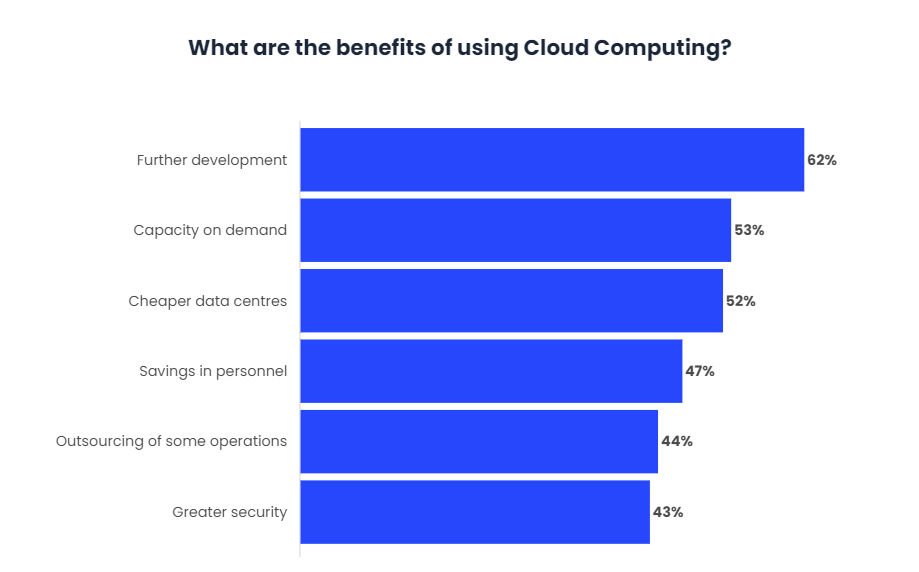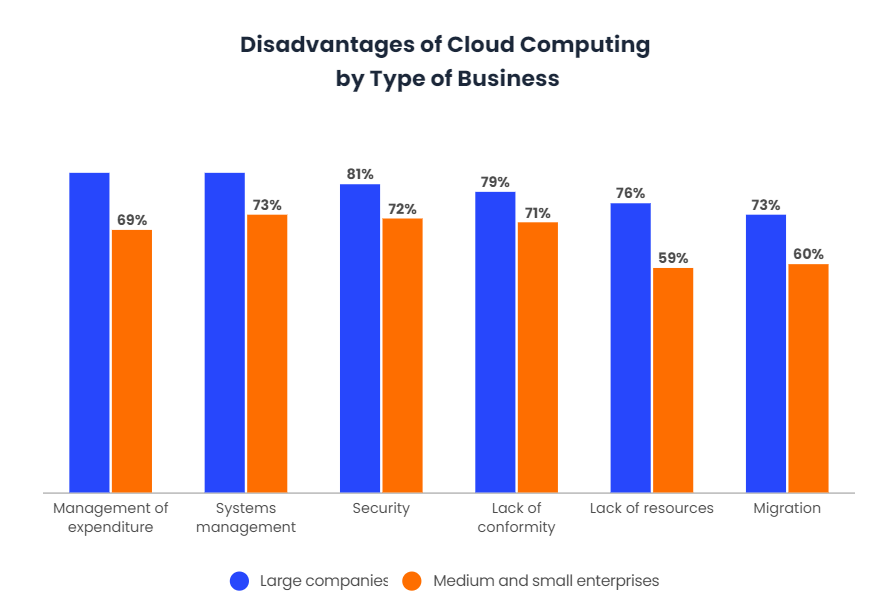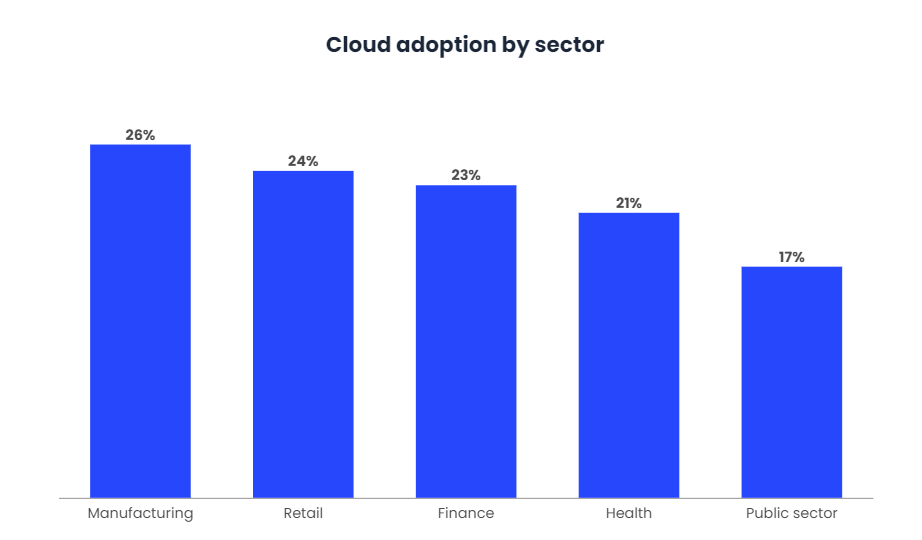Now that the cloud has gained ground in the technology industry, the mystery of its popularity has shrunk. Its speed and scalability make this technology an attractive choice for businesses.
Thanks to its elasticity, the cloud provides organizations with the capacity they need when they need it. In contrast to internal infrastructure, where there are often large up-front expenses, there is great value in adopting the cloud because of its specific costs.
There are several reasons why developers are adopting writing codes in the cloud. However, it is important to keep in mind that cloud platforms are not as recent concepts as some might think. In fact, some platforms have been on the market for more than 10 years, originally they were basic storage and computing platforms, although they have become much more than that.
What does the cloud offer?
The cloud offers unique benefits for developers who can help them in their operations. To take full advantage of enterprise technology, it is vital to understand both the benefits and obstacles of cloud computing.

However, there are many more advantages than disadvantages:
Many organizations still think of the cloud in terms of data storage. While today’s cloud computing services do much more than store data, storage remains an important part of any IT infrastructure.
From storing important files and hosting applications to securely storing valuable customer data, having enough storage space to meet those needs is essential for a growing business.
Instead of managing a growing collection of hard drives that grows as customers expand, enterprises can use cloud computing to scale their data storage plan to meet their availability needs without incurring the capital expense of expanding physical infrastructure.
Cloud computing is cost-effective because it enables enterprises to save a huge capital cost with zero server internal storage and application requirements.
Having no local infrastructure eliminates the associated operational costs, as well as the costs of administration, power, or cooling. With cloud computing, enterprises pay for the services they use and stop participating when they want.
One of the biggest myths about cloud services is that they’re too expensive, so small businesses can’t afford them. However, they are actually quite affordable for small businesses. For most companies, costs are one of the key factors when deciding whether to implement a solution or not.
Cloud computing is more reliable compared to an internal IT infrastructure. In cases of server failure, hosted applications and services can be moved to any of the available services with ease.
Cloud computing provides much improved and simplified IT management, and developers enjoy a simple web-based user interface to access software, applications, and services. Increasing computing resources are giving enterprises a competitive advantage over their competitors.
Developers can deploy mission-critical applications that deliver immense business benefits with no up-front costs, minimal provisioning time. Other important benefits, especially for developers, are faster and easier access to core services.
Cloud computing has revolutionized IT infrastructure by providing even the smallest enterprises with access to high-powered processing resources previously available only to their largest competitors. Whether using powerful software development tools or analyzing data with sophisticated analytics programs, enterprises are turning to the cloud to develop products and services that generate transformative business results.
In the past, infrastructure constraints prevented companies from rapidly increasing their computing resources. Not only did they have to buy new equipment, but they often invested months to put those assets in place and solve initial implementation problems.
With cloud computing, they can scale the computing power of their infrastructure as needed, allowing them to accommodate temporary traffic spikes or increase capacity for permanent increases in workloads.
The Challenges
The biggest disadvantage most developers encounter when talking about the weaknesses of cloud software development is occasional disruptions and downtime.
Although cloud services have the highest security standards compared to other solutions, there is still a long way to go to ensure the highest levels of security. Because there is always the risk of storing critical data and files with third-party service providers.
On the other hand, it is important to consider the level of flexibility of cloud services. Providers like to highlight this when they talk about using and integrating services in the cloud, but changing services is another story. Companies may find it difficult to migrate their services from one provider to another, as they may face support and interoperability issues.
However, with so many cloud service providers, you can only expect to see more improvements in this field. Seeing security as a critical issue, companies will have to decide which option is best for their business and their security. But, before making that decision, they should be aware of all the advantages and disadvantages, as this decision will directly affect their business.

How much can companies get?
It is difficult to get figures on the number of companies adopting cloud services, due to the rapid growth of the market. However, a body of research suggests that around 12% of companies consider themselves to be ‘pioneering organisations in the cloud’, and about a third execute some kind of workload in the cloud, while a quarter of companies insist that they will never move on demand.
This is a technology that despite all its virtues does not adapt to all types of companies. However, more and more companies are aware of the help offered by the cloud to grow businesses and meet other objectives.

The DevOps and the cloud
The DevOps world in particular is increasingly seeing the benefits of cloud adoption. Implementing cloud technology in an organization that uses DevOps can improve developer productivity and efficiency by automating processes such as code creation and management, and by increasing delivery speeds.
For example, many of Fintech’s companies have evolved over the years and progressed with the help of modern application architectures and DevOps tools and practices associated with native cloud technologies.
Cloud computing advances IT transformation, and with advanced tools and automation, it can enable companies in any industry to duplicate work to streamline and incorporate DevOps processes for greater efficiency that is truly transformative.
Inherently, as processes improve, DevOps also requires a culture change. Cloud computing can play a role here, as it can help code and automate new processes.
For example, if there is a new way for developers to group the components they need to deliver a service, such as code, configuration, libraries, and channel definitions, advanced automation tools can streamline the process and make it clearly repeatable.
Together, DevOps and cloud computing are an inexhaustible source. While each offers greater effectiveness and business impact, together they can drive a significant IT transformation that directly impacts business objectives, regardless of the DevOps definition.
Conclusions
Despite the speed with which cloud computing has expanded, it is still in a relatively early stage of adoption. Many companies are still considering what applications to move and when.
However, usage is likely to increase as organizations become more comfortable with the idea that their data is somewhere other than a server in the basement. Particularly in the sector of companies focused on DevOps.
As a result, cloud computing providers are increasingly driving cloud computing as a digital transformation agent rather than simply focusing on cost. Moving to the cloud can help enterprises rethink business processes and accelerate business change by helping to break down data and organizational silos.
Some companies that need to increase momentum around their digital transformation programs may find this argument attractive; others may find that enthusiasm for the cloud is decreasing as costs rise.
























